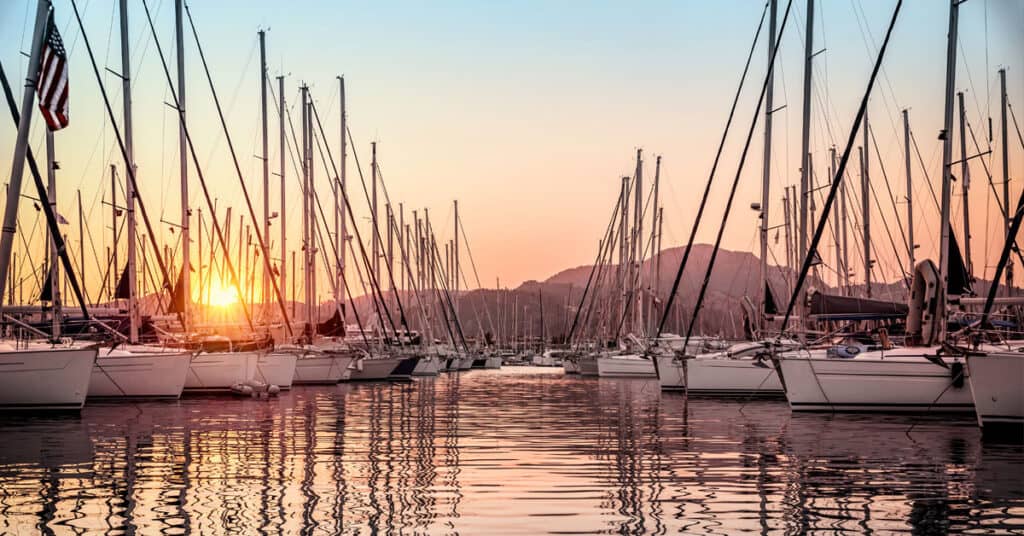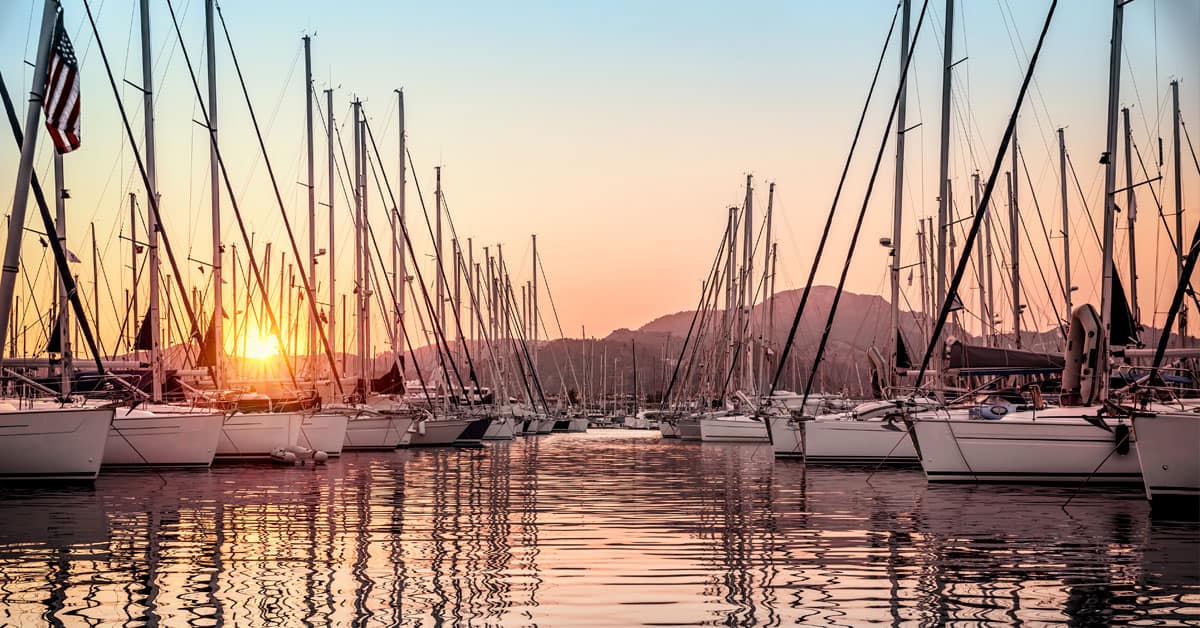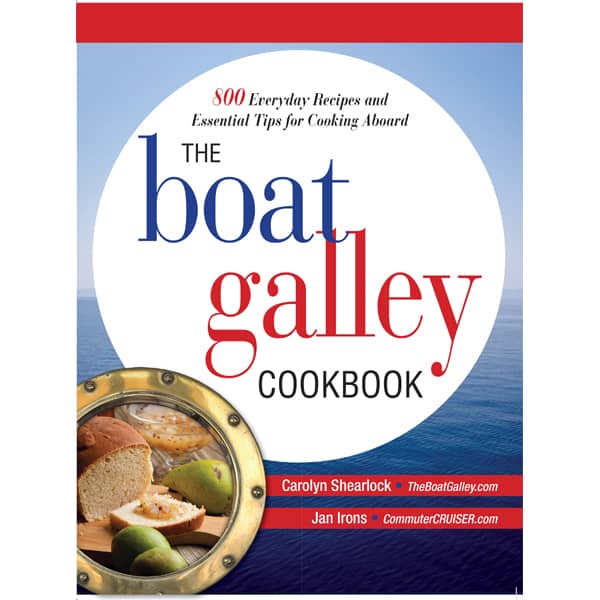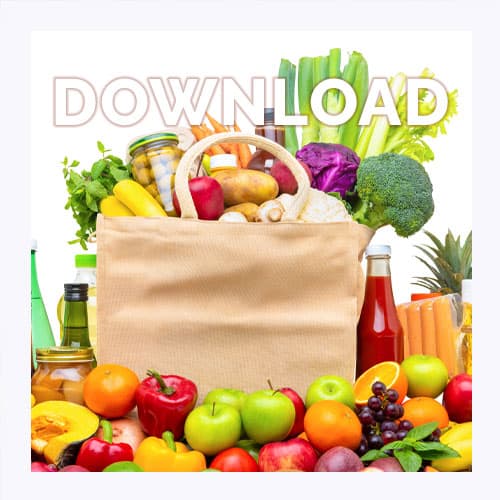This is the transcript for Nica Water’s Podcast on how to ensure you can always make meals in your boat–no matter where you are or what goes wrong.
Well, today, I want to talk to you about ABCs. Actually, the ABCs of living on a boat. Well, really, it’s the ABCs in the galley, and really, what it means is to always be able to cook. Hi, I’m Nica Waters, and welcome to The Boat Galley podcast. I’m talking about redundancy in the galley and exactly what that means to me, and why it might be important for you to think about.
The Boat Galley podcast is sponsored by FastSeas.com. That’s F-A-S-T-S-E-A-S.com. Plan your next passage using FastSeas.com. Whether you are after speed or comfort, FastSeas will find the optimum route to your destination. FastSeas- making weather routing simple. Use coupon code GALLEY, that’s G-A-L-L-E-Y, for an exclusive 10% discount.
Things that we talk about here on The Boat Galley Podcast are all designed to help you make boat life better. And one of the things that I think is really important when you’re going cruising, living on a boat, all the bits and pieces that go into it, one of them is self-sufficiency, and the other is sticking to a budget, whatever your budget might be. You probably have one. And one easy way to set yourself up for big success with both of these perspectives and both of these angles and things to talk about is cooking aboard. And while I’ll extoll the virtues of all kinds of redundancy for all your major systems, today I’m talking specifically about the ones that affect your ability to always be able to cook onboard. Or really, it’s able to eat, but ABE doesn’t sound quite as good as ABC. There are three different ways that I think about this. Thefirst is spare fuel. The second is spare equipment. And the third is spare food.
Spare fuel. My recommendation is to make sure you always have spare fuel aboard. If you’re a propane boat, that means you’ve got a second tank. If you’re an all-electric boat, it means you’ve got another way to charge your batteries, and not just from solar. Maybe you have a generator. If you have an alcohol stove, it means you’ve got an extra collection of alcohol. If you’re kerosene, the same thing. Always have spare fuel on board. And here’s why.
Generally, when you’re cooking and you’re on a boat, you’re gonna run out at the most inopportune moment. If you have a spare propane bottle, you just swap out your empty one for the full one that you happen to have. And I’ve talked to people who tell me that they don’t have space for a spare tank. Well, your spare tank doesn’t have to be the same size as your big one. Maybe you have a 20-pounder as your main propane tank. So fine, get a smaller one. And think about where you’re going to store it. You may have to get creative.
I know on Calypso with our spare, we actually have a 6-pound barbecue tank that we just lash to the boom gallows. Somaybe look and see if there’s a spot on a stanchion that you can lash a spare tank to that might be smaller than your big one. In the States or other places where you are where you can find those disposable ones, maybe that’s your spare tank. And you have a disposable one that you use, and it buys you enough time to find a place to go refill your main tank. Butthe whole point is that you can continue to cook even when that first one runs out. A boat that I follow, Triteia, Sailor James, that some of you may be aware of him from his excellent YouTube channel. He has an all-electric galley. Andrecently, he suffered an electrical issue where he thinks he got hit by lightning, and he lost all of his batteries. He’s got a generator on board that he could use to power his all-electric galley, even though he couldn’t charge his batteries for that.So, have spare fuel onboard. Whatever that happens to look like. That’s key number one.
Second is to have spare equipment. What happens if your main thing doesn’t work? What happens if you blow a fuse on your main stove? What happens if your propane system somehow runs out? What happens, I don’t know, there are probably all kinds of scenarios you can come up with, but if you have spare equipment onboard, you always have a way to be able to cook. On Calypso, we’ve got an induction burner that we can use and power off of our solar. We’ve been using it to make our coffee in the morning, so we’re getting used to using it, but it’s nice to have as a backup. Always have spare equipment. Maybe it’s your grill. Maybe it’s a way to cook ashore, either on a barbecue grill that you can take to shore or something else. Maybe it’s a solar oven. But have spare equipment on the boat that you can cook with. And be familiar with how to use it.
And the third thing is spare food. Now I know that probably sounds a little silly, but what I mean by that is have food on the boat that doesn’t actually require cooking. If it’s too hot if something has gone wrong and you run out of your spare fuel or your spare equipment doesn’t work (those would be a lot of things going wrong all at the same time) but if you have spare food in the form of things that don’t need cooking like a can of beans like some cheese and crackers, or nibbles or hummus that you have in the fridge. If you don’t have refrigeration, maybe you make sure that you always have an apple and peanut butter or crackers, something that you could always eat even if you can’t cook for some reason, but thespare food is always important to have. On our boat, where we happen to be cruising, being a self-sufficient boat means we have plenty of food on board, even if it gets a little redundant. Even if we’re not in a place where we can have access to fresh stuff, and we don’t have a freezer, so we can’t carry a lot of that with us. But there’s always onions, there’s always garlic, there’s pretty much always spices, and I’ve got lots of flour and other things so I can make things with. But having spare food is an important way to make sure you can always eat on your boat.
So there you go. Three types of spares to think about with the idea of ABC, always be able to cook, which means always be able to eat. You wanna have spare fuel. You want to have spare cooking equipment. You wanna have spare food. Thoseare the three spares. Always be able to cook on board. It helps with the self-sufficiency aspect. It helps with the sticking to a budget aspect. And frankly, it just gives you a sense of deep satisfaction when you manage to cook on your boat when maybe people aren’t necessarily thinking that you’ll be able to. I can’t wait to share an anchorage with you when we get to toast to our amazing good fortune about being able to live this amazing life. And maybe you’ll share some of your favorite recipes with me. Because I am happy to share mine with you. Thank you so much for listening to The Boat Galley podcast. We love hearing from our listeners. We love it when you share us with your friends. We love it when you leave us a review because leaving us a review means that other people can find us more easily. We hope you have the most spectacular week..
Simplify meal prep on board with proven strategies for provisioning, maximizing fridge space, and cooking delicious meals aboard your boat.










Leave a Reply